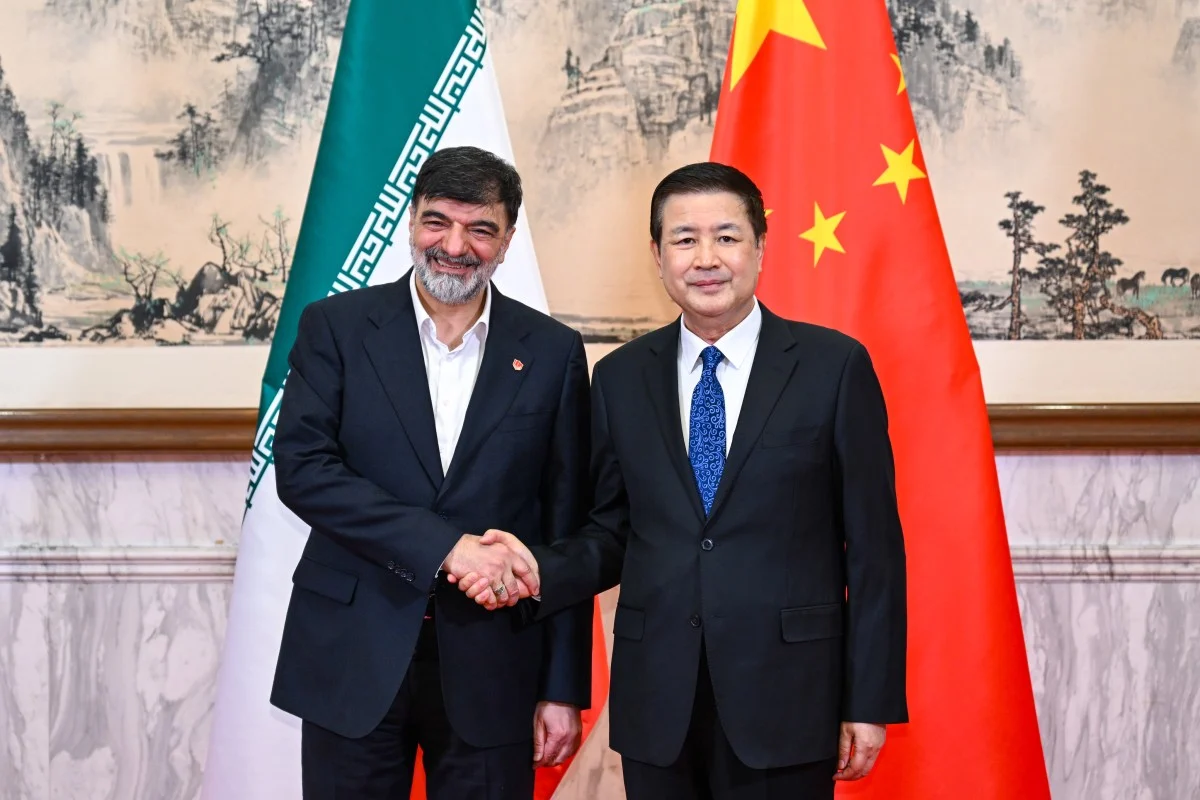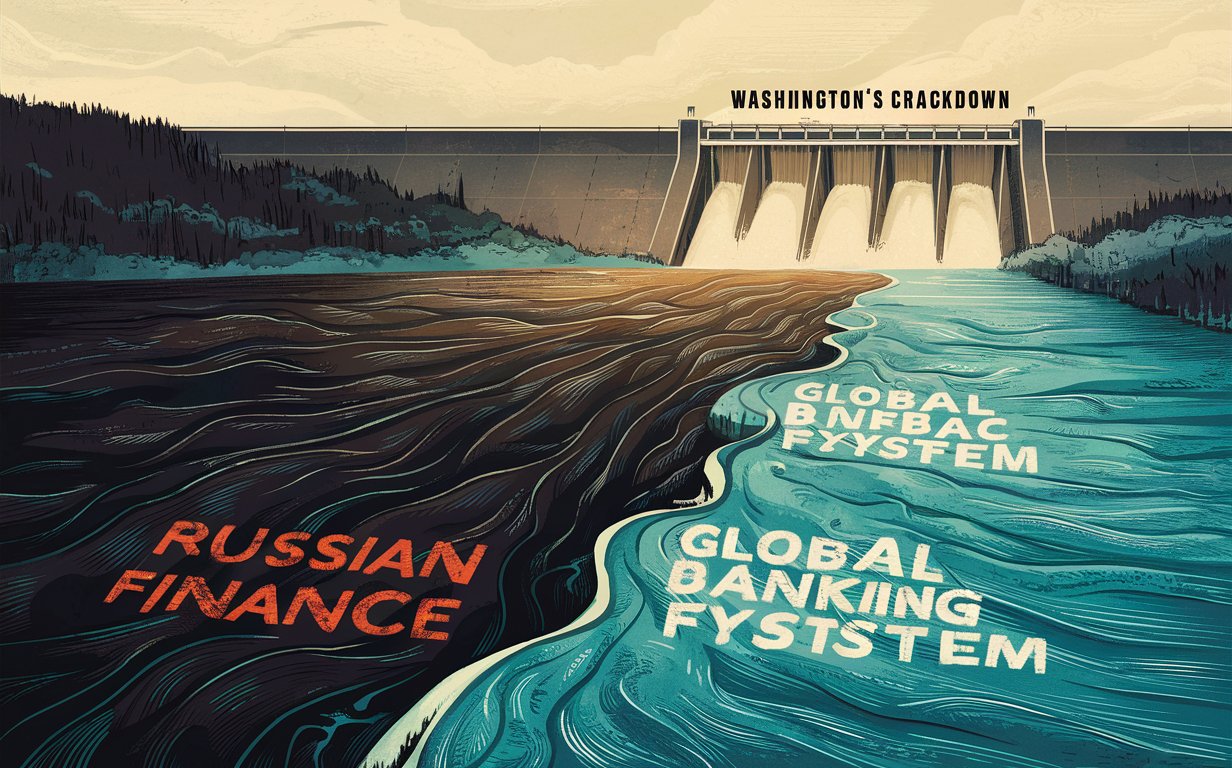News
Deepening Ties: China and Iran Ink Policing Pact Amidst Geopolitical Uncertainty

In a move raising eyebrows across the globe, China and Iran signed a Memorandum of Understanding (MOU) on law enforcement cooperation during the recent visit of Iranian Police Chief Ahmad Reza Radan to Beijing. This agreement comes amidst heightened geopolitical tensions and raises questions about the nature and implications of this burgeoning security partnership.
The Details of the Deal:
The MOU, signed by Radan and China’s Security Minister Wang Xiaohong, reportedly focuses on collaboration in several key areas:
- Combating terrorism and transnational crime: This includes cooperation on information sharing, joint operations, and capacity building in areas like counter-terrorism training and cybercrime investigations.
- Drug trafficking: Both countries have struggled with drug issues, and the MOU highlights cooperation in interdicting narcotics trafficking routes and dismantling drug cartels.
- Maintaining social order: This broad category could encompass collaboration on crowd control, surveillance technologies, and intelligence sharing regarding potential threats to internal security.
While these areas of cooperation appear seemingly benign on the surface, deeper analysis reveals potential concerns and implications:
Geopolitical Context:
Both China and Iran face international pressure and isolation on the world stage. China’s assertive foreign policy and human rights record, coupled with its territorial disputes with neighbours, has strained its relations with Western powers. Similarly, Iran’s nuclear program and alleged support for regional militias have placed it under heavy sanctions and scrutiny from the international community.
In this context, the security pact between China and Iran can be seen as a strategic move to bolster each other’s positions and counter external pressures. The agreement signals their shared defiance towards Western influence and strengthens their relationship as two countries facing similar challenges on the global stage.
Security Concerns:
The MOU’s focus on intelligence sharing and joint operations raises concerns about potential human rights abuses. Both China and Iran have been criticized for their use of mass surveillance and suppression of dissent. Closer cooperation in these areas could lead to increased repression and the sharing of technologies and tactics used to stifle domestic opposition.
Furthermore, the emphasis on combating cross-border crime could extend to issues beyond traditional narcotics trafficking. This could involve cooperation in extraditing dissidents or individuals sought by international law enforcement agencies, potentially infringing on asylum rights and due process.
Technology Transfer and Surveillance:
Radan’s visit notably included a tour of China’s Ministry of Public Security’s technology center, a detail absent from official Chinese media reports. This suggests potential technology transfer or cooperation in areas like facial recognition, social media monitoring, and other advanced surveillance tools. The proliferation of such technologies raises concerns about increased citizen surveillance and the potential for misuse by both regimes.
Looking Ahead: Implications and Unknowns
The full scope and implications of the China-Iran security pact remain to be seen. However, some potential consequences include:
- Escalated tensions with the West: This agreement could further strain relations between China Iran and Western powers, potentially leading to increased sanctions and diplomatic friction.
- Regional instability: Increased security cooperation between China and Iran could raise concerns about their potential influence in conflict zones across the Middle East, further destabilising the region.
- Human rights concerns: As mentioned earlier, closer cooperation in security matters could lead to increased human rights abuses by both countries.
While the immediate ramifications remain unclear, one thing is certain: the deepening security partnership between China and Iran marks a significant development with far-reaching implications for regional and global security dynamics. It is crucial to monitor the implementation of this agreement closely and raise concerns about potential human rights abuses or threats to international stability.
Analysis
Russian Finance Flows Slump After US Targets Putin’s War Machine: Washington’s Crackdown Shows Leverage Over Global Banking System

Russian finance flows have slumped after the US targeted President Vladimir Putin’s war machine. Washington’s crackdown on Russia’s military aggression has shown its leverage over the global banking system. The US has been able to use its influence over the international financial system to isolate Russia and disrupt its economic growth.

The US government has been targeting Russian banks and financial institutions that are linked to Putin’s war machine. This has led to a significant reduction in the amount of money flowing into Russia’s economy. The US has also been able to persuade other countries to impose sanctions on Russia, which has further contributed to the decline in Russian finance flows. The US has shown that it has the power to influence the global financial system and that it is willing to use this power to achieve its foreign policy objectives.
Table of Contents
Overview of US Sanctions on Russian Finance

In recent years, the United States has implemented a series of sanctions on Russian finance as part of its efforts to pressure the Russian government. These sanctions have had a significant impact on the Russian economy, particularly on Putin’s war machine and the global banking system.
Impact on Putin’s War Machine
The US sanctions have targeted key Russian individuals and entities involved in the country’s military and intelligence operations. This has resulted in a significant reduction in the flow of funds to Putin’s war machine, which has been forced to cut back on its activities and reduce its military presence in certain regions.
The impact of these sanctions has been particularly felt in Syria, where Russia has been supporting the Assad regime. With reduced funds, Russia has been forced to scale back its military operations in the country, making it more difficult for the Assad regime to maintain control.
Global Banking System Leverage
One of the key ways in which the United States has been able to implement these sanctions is through its leverage over the global banking system. As a result of the US dollar’s status as the world’s reserve currency, the majority of international transactions are conducted in dollars and pass through US banks.
This has allowed the US government to use its influence over these banks to enforce its sanctions on Russian finance. Banks that violate these sanctions can face significant fines and other penalties, which has made them hesitant to do business with Russian entities.
Overall, the US sanctions on Russian finance have had a significant impact on the Russian economy, particularly on Putin’s war machine and the global banking system. While there have been some efforts to circumvent these sanctions, the US government’s leverage over the global financial system has made it difficult for Russia to fully evade them.
Analysis of Russian Financial Flows

Current Trends
The US government’s recent crackdown on Russia has led to a significant slump in Russian financial flows. The sanctions imposed by the US on Russian companies and individuals have resulted in a decrease in foreign investment in Russia. This has led to a reduction in the amount of money flowing into the country, which has had a negative impact on the Russian economy.
The Russian government has responded to the sanctions by increasing its efforts to attract investment from other countries, particularly those in Asia. However, these efforts have so far been largely unsuccessful, as many investors are hesitant to invest in a country that is facing such significant economic challenges.
Comparative Financial Data
According to data from the Central Bank of Russia, the country’s financial flows have been decreasing steadily since the US sanctions were first announced. In the first quarter of 2022, the net outflow of capital from Russia amounted to $33.1 billion, which was a significant increase from the $8.1 billion that was recorded in the same period the previous year.
This decline in financial flows has had a negative impact on the Russian economy, which has been struggling with low growth and high inflation. The Russian government has taken steps to address these issues, including implementing economic reforms and increasing investment in infrastructure. However, the impact of these measures has been limited so far, and the country’s economic outlook remains uncertain.
In conclusion, the US government’s recent crackdown on Russia has had a significant impact on the country’s financial flows. While the Russian government has taken steps to address these challenges, the impact of these measures has been limited so far. As a result, the country’s economic outlook remains uncertain, and it is likely that the slump in financial flows will continue for the foreseeable future.
International Response

European Union Stance
The European Union (EU) has expressed concerns over the impact of the US sanctions on Russia’s economy. The EU has traditionally been a major trading partner with Russia, with trade between the two regions amounting to over €200 billion in 2023. The sanctions have caused a slump in Russian finance flows, which has had a knock-on effect on the EU’s economy. However, the EU has also expressed support for the US’s efforts to hold Russia accountable for its actions.
Global Economic Implications
The US’s crackdown on Russian finance flows has shown its leverage over the global banking system. This has raised concerns about the potential implications for the global economy. The sanctions have already had an impact on the price of oil, which has risen due to fears of supply disruptions. The sanctions could also lead to a slowdown in global trade, which would have a negative impact on the world economy.
Overall, the international response to the US’s sanctions on Russia has been mixed. While there are concerns about the impact on the global economy, there is also support for the US’s efforts to hold Russia accountable for its actions. The situation is likely to continue to evolve, and it remains to be seen what the long-term implications will be for the global economy.
Future Projections

Potential US Policy Adjustments
The US government’s recent crackdown on Russian financial flows has demonstrated its leverage over the global banking system. As a result, it is likely that the US will continue to use this leverage to target Russian interests and disrupt its financial stability. This could include further sanctions on Russian banks, businesses, and individuals, as well as increased scrutiny of financial transactions involving Russia.
Additionally, the US may seek to work with its allies to coordinate a multilateral approach to targeting Russian financial flows. This could involve the imposition of joint sanctions or the sharing of intelligence to identify and disrupt illicit financial activity.
Russian Financial Strategies
In response to the US crackdown, Russia is likely to adopt a range of financial strategies to mitigate the impact of sanctions and protect its financial stability. These could include diversifying its sources of funding, reducing its reliance on the US dollar as a reserve currency, and increasing its use of alternative payment systems.
Russia may also seek to strengthen its relationships with other countries, particularly those that are willing to provide financial support or investment. This could include China, which has already expressed its willingness to work with Russia to develop alternative payment systems and reduce their reliance on the US dollar.
Overall, the future of Russian finance flows remains uncertain. While the US has demonstrated its ability to disrupt these flows, Russia has shown a willingness to adopt new strategies to protect its financial stability. As such, it is likely that the financial relationship between the US and Russia will continue to be a source of tension and uncertainty in the years to come.
Expert Opinions

Economic Analysts Insights
Several economic analysts have expressed their concerns over the recent slump in Russian finance flows after the US targeted Putin’s war machine. According to Bloomberg, the sanctions have hit Russia’s sovereign debt, which has led to a sharp decline in the value of the ruble. This has resulted in a reduction in foreign investment in Russia, as investors are hesitant to invest in a country that is facing economic uncertainty.
In addition, the sanctions have also affected Russia’s ability to access the global banking system, which has made it difficult for Russian companies to conduct international transactions. This has further reduced the flow of finance into the country, which has had a negative impact on the Russian economy.
Political Analysts Views
Political analysts have also weighed in on the situation, with some suggesting that the US is using its leverage over the global banking system to exert pressure on Russia. According to The Guardian, the US has been able to use its position as the world’s largest economy to force other countries to comply with its sanctions against Russia.
Some political analysts have also suggested that the US is using the sanctions as a way to undermine Putin’s government and weaken Russia’s position on the global stage. However, others have argued that the sanctions are necessary to prevent Russia from engaging in aggressive behaviour towards its neighbours.
Overall, it is clear that the recent sanctions have had a significant impact on Russia’s economy and its ability to access the global banking system. While some analysts believe that the US is using the sanctions to exert political pressure on Russia, others argue that they are necessary to prevent further aggression from the country.
Digital
Unveiling the Future of Sound: Daniel Ricciardo Teases Unreleased Beats Pill Speaker

Table of Contents
Introduction
The convergence of technology and music never fails to generate excitement among enthusiasts for the latest innovations in audio devices. Recently, Formula 1 driver Daniel Ricciardo created a buzz among fans and tech enthusiasts by teasing an unreleased Beats Pill speaker. This article takes a closer look at this intriguing development, examining the potential impact of this new product on the audio industry and consumer market.
The Unveiling of the Beats Pill Speaker
Daniel Ricciardo, known for his prowess on the racetrack, surprised fans with a sneak peek of the upcoming Beats Pill speaker during a recent event. The sleek design and promising features of this unreleased device have already captured the attention of music lovers and tech aficionados worldwide.

Analyzing the Teaser
As we dissect the teaser shared by Daniel Ricciardo, it’s evident that Beats by Dre is gearing up to revolutionize the portable speaker market once again. The teaser hints at cutting-edge technology, superior sound quality, and a design that merges style with functionality. With Ricciardo’s endorsement, the Beats Pill speaker is poised to make a significant impact in the audio industry.
Potential Features and Specifications
While specific details about the unreleased Beats Pill speaker remain shrouded in secrecy, industry experts speculate on potential features based on past iterations and market trends. Expectations include enhanced connectivity options, improved battery life, immersive sound quality, and innovative design elements that set this speaker apart from its predecessors.
Market Impact and Consumer Expectations
The unveiling of the Beats Pill speaker by Daniel Ricciardo has generated considerable buzz within the consumer electronics market. As consumers eagerly await the official launch, expectations are high for a product that not only delivers exceptional audio performance but also embodies the brand’s commitment to innovation and quality. With Ricciardo’s endorsement adding a touch of star power, the Beats Pill speaker is positioned to capture a significant share of the portable speaker market.
The Future of Audio Technology
In a rapidly evolving technological landscape, the introduction of the unreleased Beats Pill speaker signifies a new chapter in the realm of audio devices. With advancements in wireless connectivity, sound engineering, and design aesthetics, this upcoming product promises to redefine the way we experience music on the go. As Daniel Ricciardo teases fans with a glimpse of what’s to come, the future of sound appears brighter and more immersive than ever before.
Conclusion
The teaser of the unreleased Beats Pill speaker by Daniel Ricciardo has set the stage for a groundbreaking addition to the audio industry. With its blend of style, innovation, and superior sound quality, this upcoming device has the potential to captivate consumers and elevate the portable speaker market to new heights. As we eagerly await the official launch, one thing is certain – the future of sound is about to get a whole lot more exciting with the arrival of the Beats Pill speaker.
Football
Unveiling Dani Ceballos: Real Madrid’s Unsung Hero Facing Uncertain Future at Atletico Madrid

The world of Spanish football is buzzing with transfer rumours surrounding Real Madrid and Atletico Madrid. The reports of a pre-agreement between the two clubs for a Real Madrid player to join Atletico Madrid have created a lot of curiosity and speculation among fans and experts. This news has brought up concerns about the depth of the squads, the dynamics between the players, and the future of some key individuals.
Table of Contents
Real Madrid’s Squad Depth and Carlo Ancelotti’s Tactical Mastery
Real Madrid, under the astute guidance of Carlo Ancelotti, have defied the odds this season despite facing a barrage of injuries and challenges. Ancelotti’s ability to maximize the potential of his limited options has been commendable, propelling Los Blancos to the brink of La Liga glory and positioning them as favorites for their 15th Champions League triumph.

The resilience and adaptability of the players cannot be understated, with many stepping up to fill crucial roles in the team’s success. However, amidst the celebrations and victories, there are those who have found themselves on the periphery of the action, waiting for their moment to shine.
Dani Ceballos: The Forgotten Talent
One such player is Dani Ceballos, a talented Spaniard who showcased his prowess as a difference-maker in the previous season, earning himself a lucrative contract extension in the summer. Despite his potential and past contributions, Ceballos has found playing time hard to come by this season, with limited appearances and minutes on the field.
According to statistics from Transfermarkt, Ceballos has made 22 appearances and played a mere 571 minutes of football in the ongoing campaign, raising concerns about his role within the team and his future at Real Madrid.
The Uncertain Future: Atletico Madrid Beckons
As rumours swirl about a potential move to Atletico Madrid, Ceballos finds himself at a crossroads in his career. The allure of a new challenge and the promise of more playing time may tempt the midfielder to seek greener pastures at the rival club, where opportunities for growth and development could be more abundant.
However, the decision to leave Real Madrid, a club steeped in history and tradition, is not one to be taken lightly. Ceballos must weigh his options carefully, considering the impact of his departure on both his career trajectory and his legacy at the club.
Conclusion: A Tale of Talent and Tenacity
In the ever-evolving landscape of professional football, the story of Dani Ceballos serves as a poignant reminder of the highs and lows that come with the pursuit of excellence. As he navigates the twists and turns of his career, Ceballos must draw upon his talent, tenacity, and determination to carve out a path that leads to success and fulfilment, whether at Real Madrid or Atletico Madrid.
Only time will tell where Ceballos’s journey will take him, but one thing is certain: his story is far from over, and the footballing world will be watching with bated breath to see what the future holds for this promising young talent.
-

 Featured3 years ago
Featured3 years agoThe Right-Wing Politics in United States & The Capitol Hill Mayhem
-

 Elections 20242 months ago
Elections 20242 months agoAnalyzing Trump’s Super Tuesday Triumph and Nikki Haley’s Strategic Moves
-

 News2 years ago
News2 years agoPrioritizing health & education most effective way to improve socio-economic status: President
-

 China3 years ago
China3 years agoCoronavirus Pandemic and Global Response
-

 Canada3 years ago
Canada3 years agoSocio-Economic Implications of Canadian Border Closure With U.S
-

 Conflict3 years ago
Conflict3 years agoKashmir Lockdown, UNGA & Thereafter
-

 Democracy3 years ago
Democracy3 years agoMissing You! SPSC
-

 Democracy3 years ago
Democracy3 years agoPresident Dr Arif Alvi Confers Civil Awards on Independence Day























